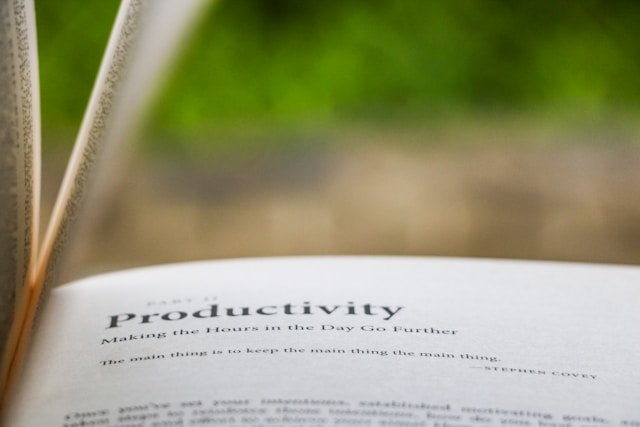Productivity and efficiency are pretty complicated aspects of life, especially for us humans–we simply ain’t machines. Today, I might be very productive, this week I might be the best at what I do, and then next week, I am just half the powerhouse I was. We have no constant energy source, our moods fluctuate, and quite frankly, sometimes we just lose our love for the work. And on such occasions, taking a step back, slowing down from the craze of the task, could be your way to a better and rejuvenated zeal.
Now, someone would ask why they would wish to slow down from their endeavors. Case in point, this article is about why and how slowing down could actually be your way to success. Truth be told, sometimes we have so much on our plates that we just can’t concentrate on a single bite at a time— a taste of this, a taste of that, a sip of this. Multitasking can only take you thus far. There is this saying from somewhere I read, from someone I didn’t note, “He who seeks everything is master of none,” or something like that. You know how these quotes escape us sometimes. Truth be told, sometimes we get caught up in so much activity in our lives that we fail to concentrate on a single aspect to see it through. True, at the start, it might seem like everything is progressing beautifully, but as things go on, one quickly realizes that progress is slow, taking tiny bites out of everything and every project taking a millennium of extra hours.
Why Slowing Down is a Necessity
1. Clarity and Better Decision-Making
We often associate speed with efficiency, but moving too fast can actually cloud our judgment, or send us crushing, whichever comes first at this point. A study published in the Harvard Business Review found that executives who slowed down and took time for deep reflection made significantly better decisions than those constantly rushing from one task to another. Slowing down allows you to analyze situations, weigh options, and ultimately make more informed choices that drive success in the long run.
2. Preventing Burnout and Enhancing Well-Being
Burnout is a real thing, for those of us juggling a job here and there it is a constant companion sometimes, and it doesn’t announce itself politely—it just kicks in and grinds you to a halt. The World Health Organization (WHO) now classifies burnout as an occupational phenomenon, emphasizing the need for breaks and proper rest. Overworking leads to diminishing returns, but stepping back and resting resets your mental and physical state, making you more productive when you return to work.
3. Boosting Creativity and Innovation
Ever noticed how the best ideas often come when you’re not actively thinking about them? Trust me, it happens, I am a writer and often my ideas come in the shower, lazying around my couch or that half awake-half asleep state early in the morning. This is because creativity shines in moments of stillness. Research from Stanford University suggests that taking breaks, or even engaging in leisurely activities can enhance problem-solving skills and encourage out-of-the-box thinking. So, if you’re struggling with a creative block, maybe the best thing to do isn’t to push harder, but to take a step back and let the mind wander, unwind and flow again. As Bruce Lee once stated, “Be water, my friend!”
4. Enhancing Productivity and Focus
Ironically, slowing down can make you more productive. Multitasking spreads your cognitive resources too thin, making everything take longer. A study from the University of California, Irvine, found that it takes an average of 23 minutes to regain full focus after switching tasks. Instead of hopping between multiple tasks, focusing on one thing at a time with deliberate intent increases efficiency and output quality.
How to Slow Down Without Losing Momentum
1. Adopt the Pomodoro Technique
Work in focused intervals (typically 25-50 minutes) followed by short breaks. This method, backed by neuroscience, helps sustain concentration without leading to exhaustion. In fact, I have employed the very same method in writing this article and the commentary is the breaks, timed to be short have a way of making the task feel new and thus you begin with a new kind of energy every time.
2. Schedule “Do-Nothing” Time
Yes, actually plan downtime. Even successful entrepreneurs like Bill Gates and Warren Buffet emphasize the importance of scheduling free time for reflection, reading, and idea generation because in life, and I have witnessed this, there is no free time unless you plan for it. We live busy lives, and there’s always something you have to do, to check out so until you decide that for this duration of time on this day I am MIA, you will forever be glued to work and personal effects.
3. Mindfulness and Meditation
Incorporating mindfulness practices, such as meditation or simple deep-breathing exercises, can help reset your mind and improve focus. This has been proven helpful by many professionals in the West, for those of us here in Uganda and most of Africa, here’s a treat for you; Why Mental Health is Taboo in Africa but a Priority in the West.
4. Prioritize and Eliminate the Unnecessary
Not everything on your to-do list is urgent or even necessary. Regularly assess your workload and eliminate tasks that do not contribute significantly to your goals.
5. Embrace Single-Tasking
Instead of attempting to juggle multiple tasks at once, commit to completing one task before moving to the next. This increases efficiency and leads to better outcomes.
Case Studies on How Slowing Down Led to Greater Success
Microsoft’s 4-Day Workweek Experiment
In 2019, Microsoft Japan experimented with a four-day workweek and found a 40% increase in productivity. Employees had more time to rest and recharge, which translated into more efficient workdays.
The Story of Bill Gates’ “Think Weeks”
Bill Gates, despite running one of the world’s largest tech companies, took biannual “think weeks” where he would isolate himself to read, reflect, and strategize. Some of Microsoft’s most groundbreaking ideas, including Internet Explorer, came from these think weeks.
Athletes and Rest Periods
Elite athletes don’t train 24/7. Rest is built into their regimen because the body needs recovery to build strength. The same principle applies to mental work—without breaks, the mind becomes fatigued, reducing performance over time.
Slowing down doesn’t mean you’re giving up; it means you’re being strategic. But then again, take it for the rest it is, not an excuse to procrastinate. Sometimes the best way forward is to take a step back.
More on Productivity and Performance: – Productivity Hacks That Aren’t ‘Toxic’




